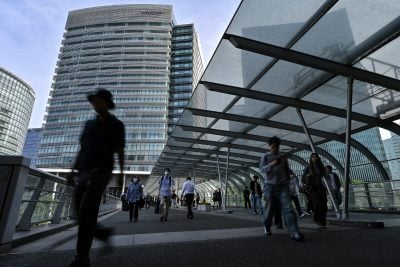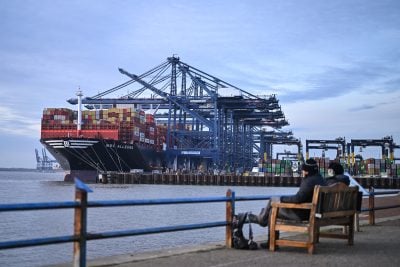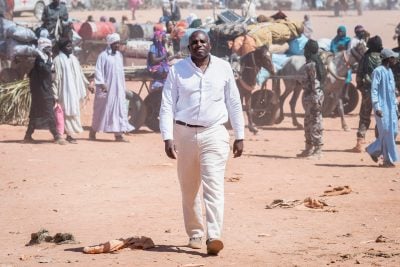The inauguration of Uhuru Kenyatta as the country’s new leader was also an opportunity to display the direction the country has set for itself over the medium term. The emphasis was on business, regional economic integration and a revival of the pan-African dream. Wanjohi Kabukuru looks back on a historic milestone.
In an unprecedented move, on 17th January 2013, roughly two and a half months before the elections, Kenya’s Chief of Defence Forces, General Julius Karangi held an invitation-only meeting with the Kenya Association of Manufacturers (KAM), the umbrella lobby of the country’s industrialists. The meeting was to brief manufacturers and the business community on the security measures planned to forestall a repeat of the 2007–
2008 post-elections violence, which saw heavy losses to the regions’s business community. “Failing to prepare is planning to fail. I therefore plead with everyone to plan for losers in the presidential election to concede defeat as quickly as possible to ensure there is no tension in the country,” Gen. Karangi impressed on the business leaders.
“We should recognise that Kenya attracts a lot of interest from regional and international fronts because it’s a regional powerhouse where if things go wrong the whole region is destabilised, threatening local and international interests.”
A week to the elections, all security chiefs met retiring President Mwai Kibaki to brief him on the security arrangements. A massive deployment of 99,000 security officers had been undertaken across the republic.
Security hotspots had also been identified and mapped out with special police and paramilitary units identified to keep watch of the regions. An elaborate, grand scheme by the country’s security services, religious leaders and the media was in place to secure a conflict-free election. The entire Kenyan media fraternity was embedded to promote restraint and tolerance to avoid fanning any sort of conflict. The press went further and managed to rally the citizenry to believe that there is life after elections.
In that same week as the top security chiefs were briefing President Kibaki, a special Kenya Air Force (KAF) Dash 8 jet left Moi Air Base in Eastleigh, Nairobi. Its destination was Dar es Salaam, Bujumbura, Kigali and Kampala. Aboard the plane was Joseph Nyaga, Kenya’s former cooperative minister. Nyaga’s new role was as Kibaki’s special envoy to the EAC heads of state assuring them that there would be no disruption whatsoever to the main regional logistics artery, the Northern Corridor. This was necessary as, in 2007–2008, the Northern Corridor was completely blocked, undermining the economies of the region.
Police helicopters and over 300 paramilitary police officers kept watch on the Kenya-Uganda Railway and the Mombasa-Malaba road to forestall any likely disruption to cargo destined for Uganda in case of an election fallout. In other words, the Kenyan election was to all intents and purposes a business-oriented poll with regional interests at play. The election was smooth and peaceful and eventually a winner was announced; the losers sought to challenge the victory by petitioning the Supreme Court. As soon as the Supreme Court returned a unanimous verdict rejecting Raila Odinga’s petition, businesses were relieved. The Nairobi Stock Exchange (NSE) gave the highest return globally as the NSE 20-Share Index crossed the 5,000 mark for the first time in five years.
“We will see an acceleration of financial and economic activity,” Patrick Obath, chairman of the Kenya Private Sector Alliance (KEPSA), said immediately after the Supreme Court made its ruling. “A lot of the funds that were sitting out there will begin to come into the country.”
Obath’s sentiments were later confirmed by the Kenya Investment Authority (KenIvest), which revealed that in the next three months the Kenyan economy is expecting to attract some $330m of FDI which had been delayed owing to election jitters. There is an almost unanimous consensus that Kenya’s fourth President, Uhuru Kenyatta, and his Jubilee Coalition are viewed as a pro-business government. Indeed, some of the key standpoints that gave President Kenyatta and Deputy President William Ruto their historic win was the coalition’s approach to business and the solutions they offered in their manifesto. President Kenyatta and Ruto have not disappointed so far.
On 9th April 2013, exactly one month from the day they were declared victors of the Kenyan presidential race, a preview of what is to be expected in Kenyatta’s government was showcased.
An intricate military parade by detachments of the Kenya Defence Forces (KDF) complimented a swearing-in ceremony that was conducted by the Chief Justice Willy Mutunga and Registrar of the Kenyan Judiciary Gladys Shollei.
A pan-African event
On display on that day was not just the inauguration of Kenyatta and Ruto. It was also not just another milestone of the triumph of the new Kenyan constitution promulgated in 2010.
It was a revival of a 50-yearold deferred dream. Twelve African Presidents, representing the major African powers were present to witness President Kenyatta taking over the reins of power from President Kibaki. Nigeria’s Goodluck Ebele Jonathan, Jacob Zuma of South Africa, Ali Bongo of Gabon, Zimbabwe’s Robert Mugabe, Ethiopia’s Hailemariam Desalegn, Yoweri Museveni of Uganda, Ismail Omar Guelleh of Djibouti, Joseph Kabila of DR Congo, Rwanda’s Paul Kagame, Tanzania’s Jakaya Kikwete, Somalia’s Hassan Sheikh Mohamud and South Sudan’s Salva Kiir all attended the swearing in. Former Kenyan and Zambian Presidents, Daniel Moi and Kenneth Kaunda, were also on the main dais.
High-powered delegations from India, China, Brazil and Russia were also present. The attendance of these well-known African leaders was initially seen as a formality but matters became more pronounced when the African Union’s (AU) anthem Nkosi Sikelel’ iAfrika was sung. It was followed by the East African Community (EAC) anthem before the Kenyan national anthem rent the air. Why would an inauguration ceremony in an African nation attract so many world leaders and stir regional integration and, most importantly, pan-Africanism?
The times were different and the realities were also different but everything was an echo of 50 years ago when President Uhuru’s father, Jomo Kenyatta, Ghana’s Kwame Nkrumah, Zambia’s Kaunda and Ethiopia’s Haile Selassie, together with likeminded African leaders reached out for a united states of Africa. While in Jomo’s time the dream of one Africa was more tuned to politics, the agenda that his son and the 12 heads of state set in Nairobi was a re-engineered pan-Africanism through economic integration.
In his speech, President Kenyatta acknowledged this facet.
“My administration is therefore committed to regional trade and cooperation and will continue to strengthen ties through the free movement of people, goods and investment, including the removal of tariff and non-tariff barriers to trade within the EAC,” Kenyatta said. “My goal is to see the continued growth of our community towards ultimate integration.”
This statement by Kenyatta was not rhetoric. On the first weekend after being declared winner, President Kenyatta flew to the port city of Mombasa to dispel rumours of an impending privatisation of the port. Kenyatta’s first task was to assure the stakeholders at the busy port, viewed as the gateway to East Africa that his government was keen to revitalise the port, the key plank in the main Northern Corridor artery which serves Uganda, Rwanda, Burundi, South Sudan and eastern DRC. In the last three years the port of Mombasa has been riddled with political intrigues over congestion, delays and labour disputes. The spillover of these incessant squabbles has largely disenfranchised the business community who depend on the port and affected consumers both in Kenya and wider East Africa.
Kenyatta also used the opportunity at the coast to get a finer grip of the region, which has also emerged as an energy frontierwith the discovery of oil and gas last year. This explains why the inauguration was a business platform. The over 60,000 crowd at the Moi International Sport Centre and the millions across the continent watching on TV and online streams were treated as shareholders in a company called Kenya Inc. The ceremony had less political theatrics but was heavy on business talk.
Sweet music to manufacturers
Some of the pledges made were sweet music to manufacturers. In one of his key promises, Kenyatta pledged that his government would work towards diversifying Kenya’s economic base by “supporting the manufacturing industry and supporting all enterprises both local and international that strive to create finished goods using local labour and materials”.
Uganda’s President Museveni, current chair of the EAC, was the main speaker and his speech dwelt on economic integration as a panacea of the myriad challenges facing the continent. Museveni acknowledged the region’s new-found status as a potential oil and gas powerhouse and went on to lobby for the scrapping of non-tariff barriers, weighbridges and police road blocks to ease delays on border crossings.
“Among the areas that must be aggressively developed is trade within and outside the region for Africa, so that the oil and gas found does not divert us, important as it may be,” Museveni said. “Our inexhaustible source of wealth is in agriculture, industry, services and the human resource that consumes what is produced and in turn produces items of trade. We need to improve the atmosphere for the East African producers, the business people by completing the economic integration of East Africa.”
It is instructive to note that months before the Kenyan elections, Kenyatta visited all regional leaders in these three bodies to woo them to his side.
The presence of Zuma, Bongo, Jonathan and the Indian and Chinese diplomats and party leaders was an endorsement from SADC, CEMAC, Ecowas and Brics respectively. This backing of the Jubilee Coalition was a big boost as, prior to the polls, envoys of Britain, France and the US had come out openly opposing the election on the grounds that Kenyatta and Ruto were facing charges at The Hague.
While the International Criminal Court (ICC) featured in the inauguration, regional economic integration and trade sentiments took the lion’s share of attention on the historic day. Right from the day when the two Jubilee leaders were declared winners, they have steered clear of the ICC subject, instead seeking to build bridges with friendlier nations. Actually, it is the ICC issue which revealed that, indeed, President Museveni was a key supporter of the Jubilee Coalition. Museveni used the once-in-a-lifetime opportunity offered by the inauguration to praise Kenyans for refusing the IC blackmail by voting in ICC indictees as their leaders. “I salute the Kenyan voters for rejecting the blackmail by the ICC and those who seek to abuse this institution for their own agenda.
Opinionated and arrogant actors using their careless analysis have distorted the purpose of that institution,” Museveni said. “They are now using it to install leaders of their choice in Africa and eliminate the ones they do not like.”
Double-digit growth?
After running a stellar campaign and having secured a much-needed boost by winning over regional blocs, the Jubilee coalition has the onerous task of steering the Kenyan economy to double-digit economic growth and spreading the largesse across the board. Kenyatta and his deputy Ruto have had enough lessons from which to learn what needs to be done and pitfalls to avoid. Kenya’s 50-year history is littered with lessons that the pair can draw from. They can choose to adopt Mzee Kenyatta’s 15-year economic policy; borrow lessons from Moi’s 24 years or Kibaki’s 11 years’ economic foundation. They also have an opportunity to get a hybrid of the three or chart their own path. Already the pair have shown serious business savvy in fomenting national pride and cultivating inter-communal cohesion.
The Jubilee manifesto, already co-opted into actionable programmes before the main budget in June, indicates important lessons from Kenya’s past three administrations have been incorporated. Among them is to change the perception over land from an emotive and divisive issue into a “factor of production”.
Others include spurring the manufacturing sector; diversifying the economy to incorporate ICTs; provide affordable healthcare for all and to lay more emphasis on regional trade. It is evident that President Kenyatta is highly likely to improve on his father’s performance. He has the charisma of the old man, goodwill of the people and will benefit immensely from the advice of Moi and Kibaki. Further, Kenya’s new constitution offers little room for lethargy, thanks to neat separation of powers and devolved government. Already the new president has sent out the right signals and received crucial backing from the region that will guarantee him success.
Want to continue reading? Subscribe today.
You've read all your free articles for this month! Subscribe now to enjoy full access to our content.
Digital Monthly
£8.00 / month
Receive full unlimited access to our articles, opinions, podcasts and more.
Digital Yearly
£70.00 / year
Our best value offer - save £26 and gain access to all of our digital content for an entire year!

 Sign in with Google
Sign in with Google 


